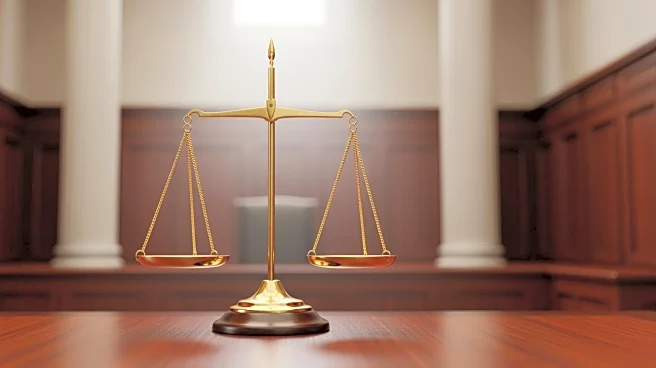What's Happening?
Federal judges across the United States have expressed dissatisfaction with the conduct of attorneys from the U.S. Department of Justice, citing ethical concerns. Historically, these attorneys have been
presumed to act in good faith, maintaining a 'presumption of regularity.' However, recent instances have led judges to question this presumption, as noted by U.S. Senior District Judge Paul L. Friedman of the District of Columbia. Judge Friedman, who has served as an assistant U.S. attorney and assistant to the solicitor general, highlighted a pattern of departures from traditional ethical standards. This skepticism from the judiciary not only affects the credibility of government arguments but also tarnishes the reputation of government attorneys and the legal profession as a whole.
Why It's Important?
The criticism from federal judges regarding the ethical conduct of U.S. attorneys is significant as it impacts the integrity and trustworthiness of legal proceedings involving the government. This erosion of credibility can have far-reaching consequences for public policy and the justice system, potentially undermining public confidence in legal institutions. The reputation of the Department of Justice, once highly regarded, is at stake, which could affect its ability to effectively argue cases and enforce laws. Legal professionals and stakeholders in the justice system may need to address these ethical concerns to restore trust and ensure the fair administration of justice.
What's Next?
The ongoing scrutiny of U.S. attorneys' ethical conduct may lead to increased oversight and potential reforms within the Department of Justice. Legal institutions might implement stricter ethical guidelines and training to prevent further departures from established standards. Stakeholders, including legal associations and government bodies, could advocate for measures to enhance transparency and accountability in legal practices. The judiciary's critical stance may prompt discussions on how to uphold ethical integrity in government legal proceedings, ensuring that future arguments are credible and trustworthy.
Beyond the Headlines
The ethical challenges faced by U.S. attorneys highlight broader issues within the legal profession, including the need for continuous ethical education and adherence to professional standards. This situation may spark debates on the role of ethics in legal practice and the importance of maintaining public trust in legal institutions. Long-term, these developments could influence how legal professionals are trained and evaluated, emphasizing the importance of ethical conduct in maintaining the credibility of the justice system.










